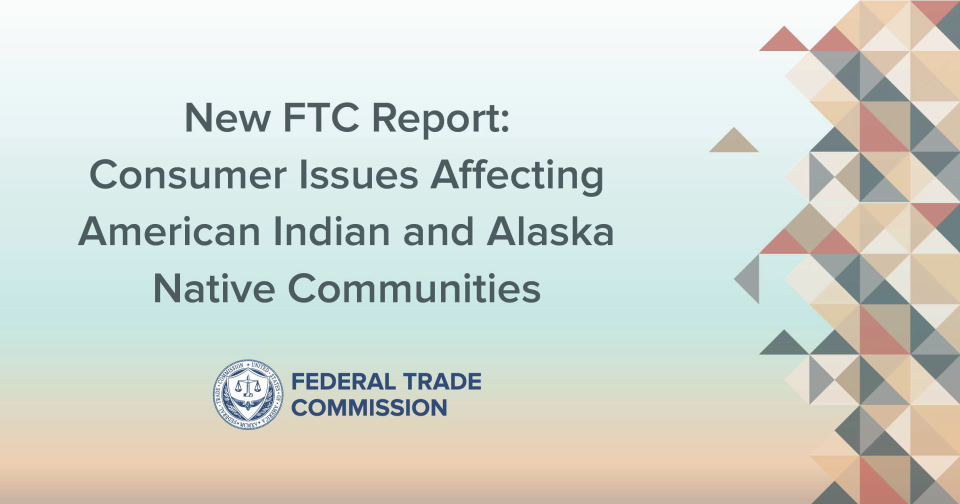Scammers and dishonest businesses can target people in unique ways, so it’s important to understand how communities are affected — and at times, differently affected — by consumer protection issues. A new FTC report focuses on the agency's recent efforts to identify frauds, scams, and bad business practices that impact American Indian and Alaska Native (AI/AN) communities.
The report includes insights from meetings with AI/AN advocacy groups, Tribal legal aid attorneys, community media, and others. It also includes analyses of consumer reports to the FTC from majority AI/AN communities and describes related FTC law enforcement work.
Here are some findings:
- Consumer issues: Many advocates cited problems with auto purchasing and financing, including deceptive advertising and a lack of clarity around fees at the dealership. Advocates also discussed hearing about or experiencing tech support, impersonation, and other types of scams.
- Money lost to fraud: Between 2018 and 2022, people living in majority AI/AN communities filed over 7,300 reports about fraud, with reported losses totaling $12.5 million.
- Types of fraud: The reported fraud experiences of people in majority AI/AN communities are similar to those reported by people in other communities. Between 2018 and 2022, government impersonation scams were the most frequently reported fraud followed by prize, sweepstakes, and lottery scams.
Looking for information on financing a car, managing debt, predatory lending, and other consumer issues identified in the report? You’ll find it at the newly-launched ftc.gov/NativeAmerican, along with information on where to report scams and how to order free materials to give out in your community.
Read the report, visit ftc.gov/NativeAmerican, and share the FTC’s free resources with your friends, family, and community!


Thank you for being so politically correct, woke, and less effective in accomplishing your basic mission.
It is wonderful that you can now focus on specific segments of the population and NOT just accomplish your mission in an all encompassing effort to rid the U.S. citizens of foreign thievery on a grand scale. By dragging your politically correct feet and celebrating epic woke holidays and announcing it to us you allow the thievery to continue. I hope that eventually all the woke people lose their jobs for non performance...... similar to what happened at Twitter. As with any job, performance should be rewarded and non-performance eliminated.
In reply to Thank you for being so… by Michael Jordan
Thank you for this important alert!
I have lunch, most weekdays, with many Elder tribal members and will submit your article and subsequent information to be added to our Announcements.
In reply to Thank you for being so… by Michael Jordan
What is wrong with you? People are trying to help and you're making these stereotypical statements that mean nothing. People are being defrauded and you're complaining about wokeness. Are you one of the fraudsters in the private sector doing this to them? Is that why you are complaining?
Hi ftc.gov administrator, Your posts are always interesting.